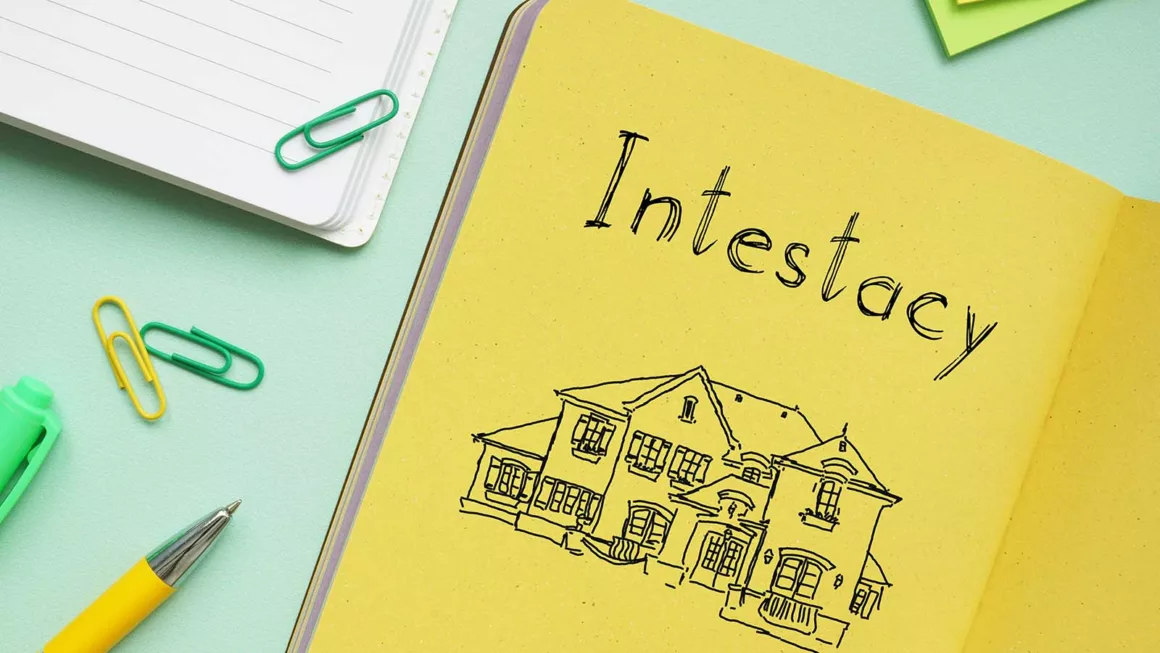Intestacy is a term frequently used in relation to discussing deaths, beneficiaries, and probate matters. Here we explain what intestacy is, and how it can apply depending on if you live in England or Wales.
What is intestacy?
In most cases, when a person dies their will is used to divide out all property, money and possessions appropriately to the named beneficiaries. However, when a person dies without leaving a will (or valid will) it is then referred to as the person dying ‘intestate’.
In addition, intestacy rules can also apply when a person dies having left a valid will, but the will does not cover the entirety of their ‘estate’. There can be many reasons for this, including instances where all beneficiaries have died. Instances such as this are referred to as ‘partial intestacy’.
What is the order of beneficiaries in cases of intestacy?
According to current rules of intestacy:
(Administration of Estates Act 1925)
Where there is a surviving spouse, and no children, the spouse is entitled to the entire (residuary) estate.
Where there is a surviving spouse and children, the spouse is entitled to the ‘personal chattels’ (possessions, not including money) of the deceased and a statutory legacy of up to £270,000. After which the residuary estate, if any, is distributed. With 50% given to the spouse and 50% divided equally between the children.
Intestate estates – what happens if there is no spouse?
In cases where there is no spouse of the deceased, alternative beneficiaries are entitled to the estate. These follow in hierarchal order, meaning if there are no qualifying beneficiaries in a group, the people in the next group become entitled. Currently, the order is as follows:
Children of the deceased – This can include legitimate, illegitimate, and adopted children. If a child of the deceased is adopted by another person, then they will no longer be entitled (unless the adoptions occurred after the death). If the child is under 18 then the estate will be held in trust until they reach 18 or marry.
Parents of the deceased – If both parents are alive, then they are entitled to an equal share, or solely to a surviving parent. If the deceased’s parents were unmarried when the intestate was born, and the father is not named on any birth certificate or birth record, then it is assumed that the father, and any person related to the intestate through the father, died before the intestate (unless evidence to the contrary is shown).
‘Whole blood’ siblings – Meaning siblings who share both parents with the deceased. If qualifying siblings died before the intestate, then their children will in turn become beneficiaries.
‘Half blood’ siblings – Meaning siblings with one parent in common with the deceased.
Grandparents – As with parents, if both grandparents are alive, then they are entitled to an equal share, or solely to a surviving grandparent.
‘Whole blood’ aunts or uncles.
‘Half blood’ aunts or uncles.
In cases where none of the above beneficiaries can be identified, then the Crown will inherit.
In cases of intestacy, locating missing or unnamed beneficiaries can seem like an almost impossible task. With potential beneficiaries in different parts of the country, overseas, or even deceased. If you would like advice, support, and professional help in locating beneficiaries then our expert team are here to get you on the right track.
If you are a solicitor or individual looking for expert genealogists or help with locating beneficiaries, let Tracing Direct help you get on the right track.
Our efficient and specialised team has helped locate thousands of beneficiaries around the globe. As one of the leading genealogy companies in the UK, we are committed to delivering a quality service.
To find out more please contact us here. Or read our latest blog posts for interesting case studies and information around beneficiaries, wills and inheritance.
 Emma McNamara
Emma McNamara